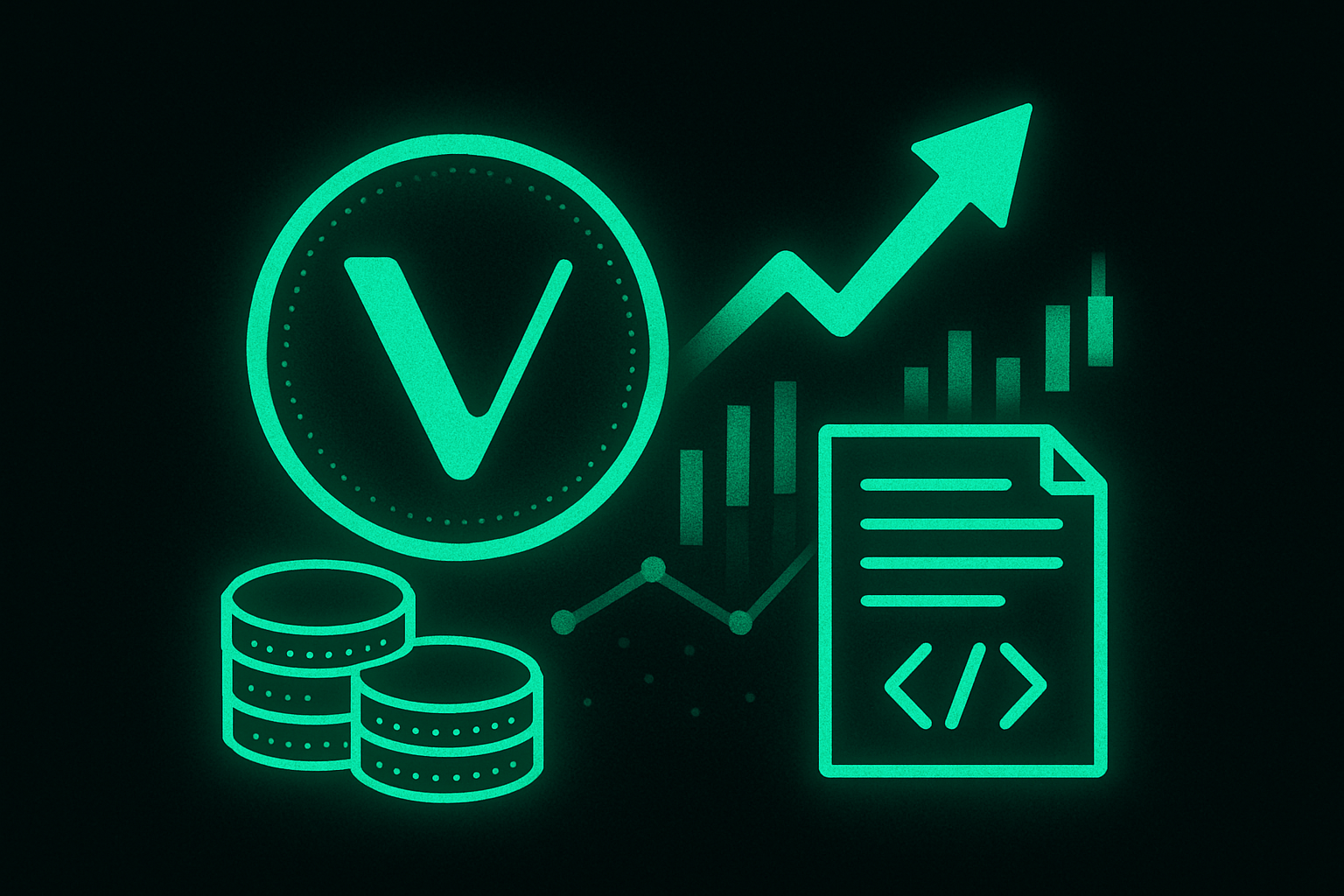ARTICLE AD BOX

- A recent academic study examining Industry 4.0 technologies has mentioned VeChain as a tool for global export supply chains.
- Since its launch, Vechain has expanded its footprint in the pharmaceuticals, Food and Beverage, and automotive industries.
VeChain (VET) is in the spotlight for its growing role in securing global supply Chains. VeChain Ambassador Sebastiana shared the recognition. Vet, who highlighted the project’s mention in a recent Industry 4.0 research report focused on the future of supply chain technology. The study identifies VeChain’s token, VET, as a practical tool for enhancing transparency and securing export chains.
What sets this recognition apart? It highlights VeChain as a functioning, real-world solution. Specifically, the platform is mentioned in a key section titled “Security of Goods, Cargo Units, and Means of Transport.”
According to the report, VeChain’s infrastructure is among the technologies capable of protecting goods against unauthorized access and theft, an essential challenge in modern logistics.
The paper outlines how Industry 4.0 technologies are revolutionizing logistics, including tools like IoT sensors for live tracking, blockchain for unalterable data, and smart devices to monitor temperature and other shipping conditions.
In that context, VeChain, alongside platforms like TradeLens, is highlighted for enabling end-to-end traceability. VeChain is helping companies keep tabs on goods across the entire supply chain with accuracy, with tools like RFID scanning, GPS integration, and ERP connectivity.
VeChain’s reputation in the logistics and blockchain space is not new. As highlighted by Crypto News Flash, the blockchain platform was featured in Acta Logistica, which called VeChain a key infrastructure provider for modern supply chains.
The report noted that VeChainThor now supports over 100 product lines and services, delivering real-time transparency for major players like Walmart.
In another example of growing credibility, a peer-reviewed article published in the Journal of Computer, Signal, and Systems Research, authored by JPMorgan Chase researcher Yuxin Liu, positioned VeChain as a prime case study of how blockchain is being implemented to solve real infrastructure challenges in cloud computing.
The study emphasizes how protocols like VeChain deliver full end-to-end visibility, helping businesses track, verify, and store critical supply chain data in a transparent and tamper-proof way.
Is Vechain Worth the Hype?
VeChain has established a reputation for providing genuine, enterprise-ready tools that companies are already utilizing. At the core of its ecosystem is VeChain ToolChain, a user-friendly platform that removes much of the technical friction typically involved in blockchain adoption.
Instead of needing a team of developers, businesses can easily plug into features like product tracking, data verification, and digital labeling using smart tools such as QR codes, RFID tags, and NFC chips. It’s a plug-and-play approach that helps companies improve transparency and traceability without reinventing their entire tech stack.
Its public blockchain, VeChainThor, is designed specifically for enterprise applications. It uses a dual-token model, VET for value transfer and VTHO for transaction fees. One unique feature is fee delegation, which lets companies cover gas fees on behalf of their users, smoothing out the onboarding experience.
VeChainThor also runs on a Proof-of-Authority (PoA) consensus mechanism, which keeps transactions fast, low-cost, and energy-efficient.
Through key partnerships, the platform is also helping companies track carbon emissions, sustainable sourcing, and ESG compliance, making it especially relevant in today’s climate-conscious world. And let’s not forget the StarGate upgrade, which went live on July 1, as part of VeChain’s Renaissance development roadmap. One of the key updates?
Increasing the maximum staking limits for validators is a move that strengthens the network’s performance and decentralization.
.png)
 4 months ago
7
4 months ago
7








 English (US)
English (US)